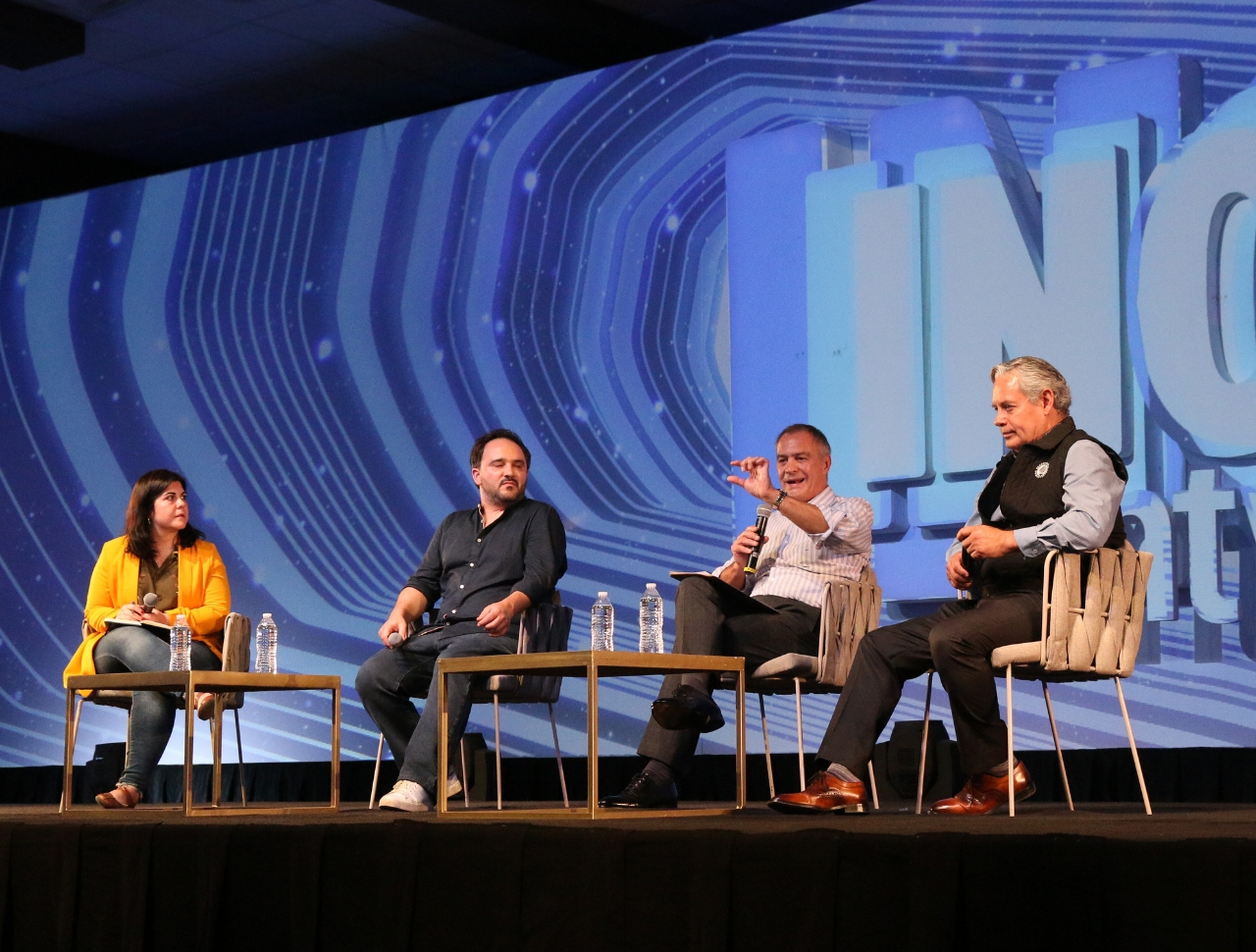The 2021 edition of EGADE U Week, the innovative Lifelong Learning initiative exclusively for EGADE Business School graduates, will take place from March 18 to 20 in online mode.
By INSTITUTIONAL COMMUNICATION | EGADE BUSINESS SCHOOL
"Leadership starts in your mind," says Jacqueline Carter, International Partner and Director for North America of Potential Project, who over the past 10 years has focused on embedding mindfulness practices into daily corporate life.
The expert in mind training, leadership, and corporate culture will participate as a keynote speaker in the 2021 edition of EGADE U Week, the innovative Lifelong Learning initiative exclusively for EGADE Business School graduates, which will take place from March 18 to 20 in online mode, under the theme "Empowering the Leader's Mind".
Carter will provide the tools to help leaders focus on the core mind qualities they need to unlock their potential and of their organizations.
The co-author of The Mind of the Leader holds a Master of Science in Organizational Behaviour. Carter has over 20 years of experience supporting organizations through large scale change, and has held a wide range of leadership and consulting roles across a range of industries including Transportation, Oil and Gas, Insurance and Government.
With Potential Project, a global leader in mindfulness-based organizational and leadership development programs, Carter has helped companies such as Accenture, Cisco, LEGO, Microsoft and Unilever improve performance, innovation and resilience through the understanding and training of Managers and Executives minds.
In interview, Carter explains the important role that the mind plays in leading more effectively.
Why start with your mind to improve your leadership?
“We conducted a 2-year research study, to find the strategies for great leadership in the 21st century. We interviewed 250 C-suite executives from Microsoft, Google, McKinsey, LEGO and more, assessed 35,000 leaders and trawled through thousands of studies on leadership. One of our key findings was that leadership starts with yourself. More specifically, it starts in your mind.”
“By understanding how your mind works, you can lead yourself effectively. By understanding and leading yourself effectively, you can understand others and be able to lead them more effectively. And by understanding and leading others more effectively, you can understand and lead your organization more effectively—and by ‘more effectively’, we mean in a way that’s going to tap into your own and your people’s intrinsic motivations and sense of purpose.”
“If you’re able to do that—and we have witnessed that with practice and persistence, anyone can—you’ll have a more engaged and productive workforce. And perhaps more importantly, you’ll be part of creating more happiness, stronger human connectedness, and better social cohesion within and beyond your organization.”
What are the core “mind” qualities you mention that leaders need to train, and why?
“Our research found that three key mental qualities stand out in great leaders: mindfulness, selflessness and compassion.”
“Mindfulness provides leaders with a stellar focus on the task at hand enabling high productivity. But equally, it provides an ability to be truly present with people, clients and stakeholders. Presence in leadership creates better connectedness and loyalty and enables the qualities of selflessness and compassion.”
“Selflessness is the opposite of ego-centeredness. A selfless leader is more concerned with the interest and needs of his or her people, organization and society at large, than of his or her own needs and desires. Selflessness increases engagement and creativity.”
“A compassionate leader has the wellbeing and happiness of his or her people in mind and always looks for way of improving it. People with compassionate leaders know that they have their back and as a result, trust and cohesion thrives.”
“In addition to our own research, a growing body of scientific evidence corroborates that these three qualities make for leadership that enables better organizational performance, health, social cohesion, and trust.”
Do you have any examples of what these qualities look like in action?
“A mindful leader is present with people. They refrain from multitasking and do not check their phone when speaking with you. They are able to cut through the clutter of daily challenges and have mental space for creative thinking.”
“A selfless leader is one who praises the team for successes and takes responsibility for setbacks. They speak in terms of ‘we’, ‘you’ and ‘us’ as opposed to ‘I’, ‘me’ and ‘mine’. They notice the contributions of people in their organizations and take time to express gratitude.”
“A compassionate leader is one who seeks to be of benefit to others. They ask questions like ‘what can I do to help you today?’ They also do not hold back from giving tough feedback towards helping someone else realize more of their potential. They are also willing to make tough but wise decisions about people and are sure to execute with extreme care and kindness.”
More information about EGADE U Week 2021, here.
